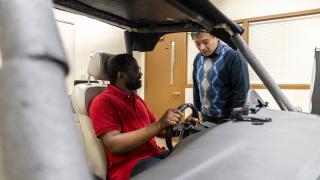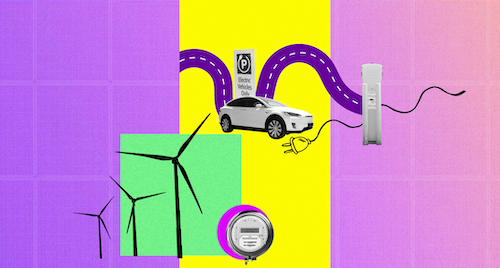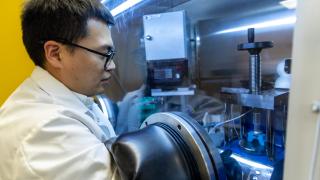
Certificate programs aren’t new to the College of Engineering and Computer Science, but Professor Wencong Su says this latest generation of certificates will definitely have a new feel for students. One of the biggest differences: The six programs debuting in Fall 2021 have all been developed closely with industry partners — meaning the skills and subject students will focus on are hyper relevant in today’s economy. Moreover, all of the 9-credit certificates map directly onto any number of UM-Dearborn master’s programs. That gives students an easy way to matriculate into a full graduate program if they find a subject they really like.
Su says the Electrical System Planning certificate, which he has been developing with Michigan utilities since 2019, is a good example of how they’re trying to make the new certificates more practical for students and employers alike. “We have a lot of UM-Dearborn graduates working in the utility industry, but they often don’t get specialized training in power systems until after they join the workforce. That shows you that even 15 years ago, this just wasn’t a hot area in academia. But now, utilities are very aggressively pursuing new technologies like smart meters and renewable energy. So they have this huge need for engineers with this expertise. Plus, as much as 50 percent of their engineers are nearing retirement in the next 10 years.”
Three additional certificates — Electrical System Analytics, Electrical System Equipment and Electrical System Protection and Control — are also designed for those interested in the utility industry. Two others, Industrial Mechatronics and Engineering of Electrified Vehicular Systems, will focus on leading edge areas in manufacturing.
Su says the close collaboration with industry means they can also get a little more creative with the curriculum. For example, if a student is already working in an engineering field, design projects can be directly tied to real-world problems at their current job. Su says they even plan on having industry partners come in to co-teach certain class sessions.
Since they expect to draw a lot of working professionals, the college has also designed the programs with a lot of flexibility, including evening classes, and options for all in-person learning, all-remote or a mix of both. “That’s one of the benefits of doing an online program with a local university: You could, for example, do most of your courses online, but then still take an occasional in-person class if your schedule allows or do the labs in-person to get that hands-on experience,” Su says. “So we really hope students will take advantage of the innovative design of these new programs.”
###
Want to learn more about CECS’s new certificates? You can read the full program descriptions, view admissions requirements, and apply online at the main Certificates Programs page.




